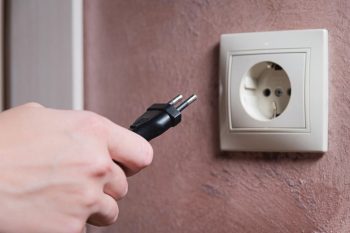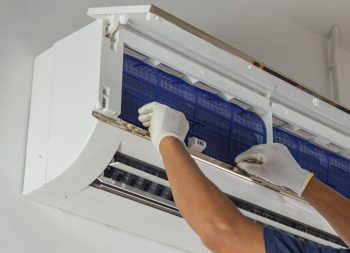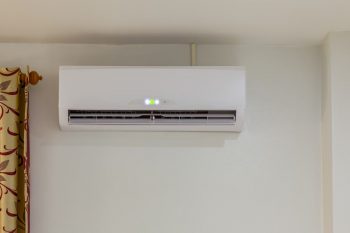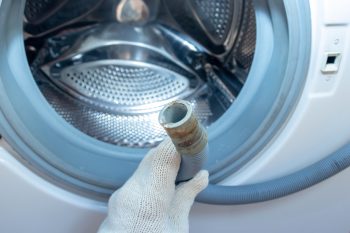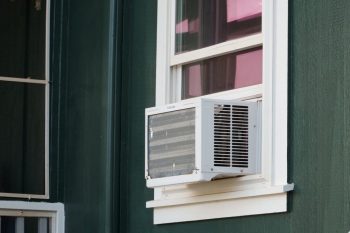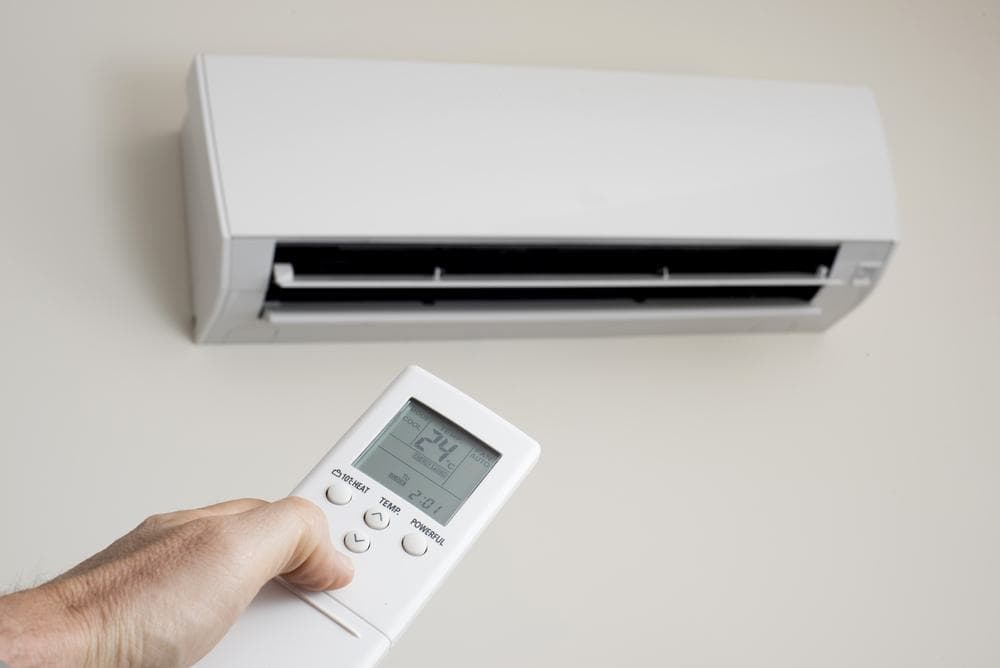
Air conditioning systems are essential for maintaining a comfortable indoor environment, especially during hot seasons. However, you may occasionally encounter some issues with your system, one of the most common being a frozen air conditioner line. When your central air conditioner line freezes, it can lead to a lack of cool air and even potential damage to the system. In this in-depth guide, we’ll explore why this happens and provide practical solutions to prevent and fix the issue.
Your central air conditioner line is freezing up primarily due to low refrigerant levels, obstructed airflow, dirt accumulation on the evaporator coils, or a malfunctioning thermostat. These factors cause the evaporator coils to become excessively cold, leading to moisture freezing on the coil and blocking airflow. To fix the issue, you can regularly check and replace dirty filters, maintain proper airflow, clean the evaporator coils, and check for refrigerant leaks. If the problem persists, it’s recommended to call an HVAC professional.
Primary Symptoms of a Freezing Central Air Conditioner Line
Before we delve into why AC lines freeze up, it’s crucial to understand the primary symptoms that indicate a freezing central air conditioner line:
- Ice buildup on the refrigerant line or evaporator coils: This is the most visible sign that your AC line is freezing up.
- Poor airflow or warm air coming out of the AC vents: If you notice that your AC is blowing warm air or the airflow has significantly reduced, it could be due to a frozen AC line.
- Inability to reach the desired temperature set on the thermostat: When your AC line freezes up, your system can’t cool your home effectively, leading to higher indoor temperatures.
Common Causes of a Freezing AC Line
A frozen AC line is typically caused by the evaporator coils becoming too cold. Here are some common factors that lead to this issue:
1. Low Refrigerant Levels
When your system has low refrigerant levels, typically due to a leak, the pressure within the refrigerant coils decreases. This causes the remaining refrigerant to become colder, leading to moisture freezing on the coil and eventually blocking airflow.
2. Obstructed Airflow
Obstructed airflow can result from a dirty air filter, blocked vents, or collapsed air ducts. This can cause the evaporator coils to become too cold, leading to a frozen AC line.
3. Accumulation of Dirt on the Coils
Dirt accumulation on the evaporator coils can restrict heat absorption, causing the coils to become too cold and freeze the refrigerant line.
4. Malfunctioning Thermostat
If the thermostat is not calibrated correctly or malfunctions, it may cause the AC system to run longer than necessary, resulting in an overly cold evaporator coil and line freezing.
Potential Dangers or Damages of a Frozen AC Line
A frozen AC line can cause several potential damages and dangers, such as:
- Stress on the compressor: Running the AC unit while its components are frozen can stress the compressor, leading to permanent damage.
- Reduced cooling efficiency: A frozen AC line can cause the air conditioner to blow warm air, leading to increased indoor temperatures.
- Water damage: As the ice on the frozen AC line melts, it can cause water damage to your home.
- Mold and mildew growth: The excess moisture from a melting frozen AC line can create an environment conducive to mold and mildew growth.
Preventing and Fixing a Frozen AC Line
To prevent and address frozen AC lines, it’s essential to maintain your air conditioning system properly. Here are some steps you can take:
- Regularly check and replace dirty air filters.
- Maintain proper airflow by keeping supply vents open and unobstructed.
- Regularly clean the evaporator coils to maintain their efficiency and prevent freezing.
- Check for refrigerant leaks and have them repaired by a professional.
- If you notice a frozen AC line, turn off the AC and let the ice melt, then try to identify the cause.
If you’ve tried these steps and the problem persists, it’s time to call a professional. An HVAC professional can diagnose the issue, recommend a course of action, and make any necessary repairs.
Remember, a frozen AC line is often a symptom of a bigger problem. Ignoring it can lead to more expensive repairs down the road. Regular maintenance and prompt attention to any issues can help ensure the efficiency and longevity of your air conditioning system.
Frequently Asked Questions
How often should I replace my air conditioner’s filter?
The frequency of replacing your air conditioner’s filter depends on several factors, such as the type of filter, your living environment, and whether you have pets. However, a good rule of thumb is to replace it every 60-90 days. If you have pets or live in a dusty environment, you may need to replace it more frequently.
How can I check for refrigerant leaks?
Refrigerant leaks can be challenging to detect without professional equipment. However, some common signs include ice buildup on the refrigerant line, hissing or bubbling noises from the AC unit, high electricity bills, and reduced cooling efficiency. If you suspect a refrigerant leak, it’s best to call a professional HVAC technician.
Can I clean the evaporator coils myself?
Yes, it’s possible to clean the evaporator coils yourself. However, it’s a delicate task that requires care to avoid damaging the coils. You’ll need to turn off the power to your AC unit, access the evaporator coil, clean it with a soft brush, and then clean it with a no-rinse coil cleaner. If you’re not comfortable doing this task, it’s best to hire a professional.
What should I do if my thermostat is malfunctioning?
If your thermostat is malfunctioning, it may need recalibration, new batteries, or replacement. If you’re comfortable with DIY tasks, you can try recalibrating it or changing the batteries. However, if these steps don’t resolve the issue, it’s best to call a professional for help.
How can I prevent mold and mildew growth from a melting frozen AC line?
To prevent mold and mildew growth from a melting frozen AC line, promptly address the issue when you notice it. This means turning off the AC to let the ice melt, cleaning up the water as soon as possible, and addressing the root cause of the freeze. Regular maintenance can also help prevent AC line freezing in the first place.

